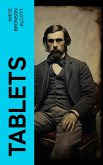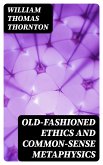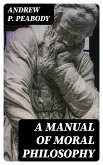In "Tablets," Amos Bronson Alcott presents a collection of philosophical essays and meditative reflections that delve into the nature of human consciousness, education, and morality. Drawing on his deep-rooted belief in transcendentalist principles, Alcott employs a lyrical and introspective literary style that mirrors the Romantic era's quest for individual enlightenment and self-discovery. Each tablet serves as a guiding beacon, encouraging readers to engage deeply with their own thoughts and experiences while navigating the complexities of society and personal growth. The work's context situates itself within 19th-century America, a period ripe for intellectual upheaval and spiritual exploration. Alcott, an influential educational reformer and a prominent figure in the transcendentalist movement, drew upon his own life experiences as a teacher, philosopher, and advocate for social justice. His commitment to progressive education, as exemplified in his experimental Temple School, fueled his desire to cultivate a generation of learners who could think critically and live ethically. This intrinsic connection between his pedagogical endeavors and his philosophical writings in "Tablets" illustrates Alcott's longing to elevate humanity through education and moral integrity. "Tablets" is a compelling read for those seeking to explore the intersections of philosophy, education, and human experience. Alcott's insights provide timeless wisdom for readers yearning to question societal norms and pursue a higher understanding of themselves and the world around them. This book is not only essential for enthusiasts of transcendentalist thought but also serves as a profound invitation to reflect on one's moral journey.
Dieser Download kann aus rechtlichen Gründen nur mit Rechnungsadresse in A, B, BG, CY, CZ, D, DK, EW, E, FIN, F, GR, H, IRL, I, LT, L, LR, M, NL, PL, P, R, S, SLO, SK ausgeliefert werden.









